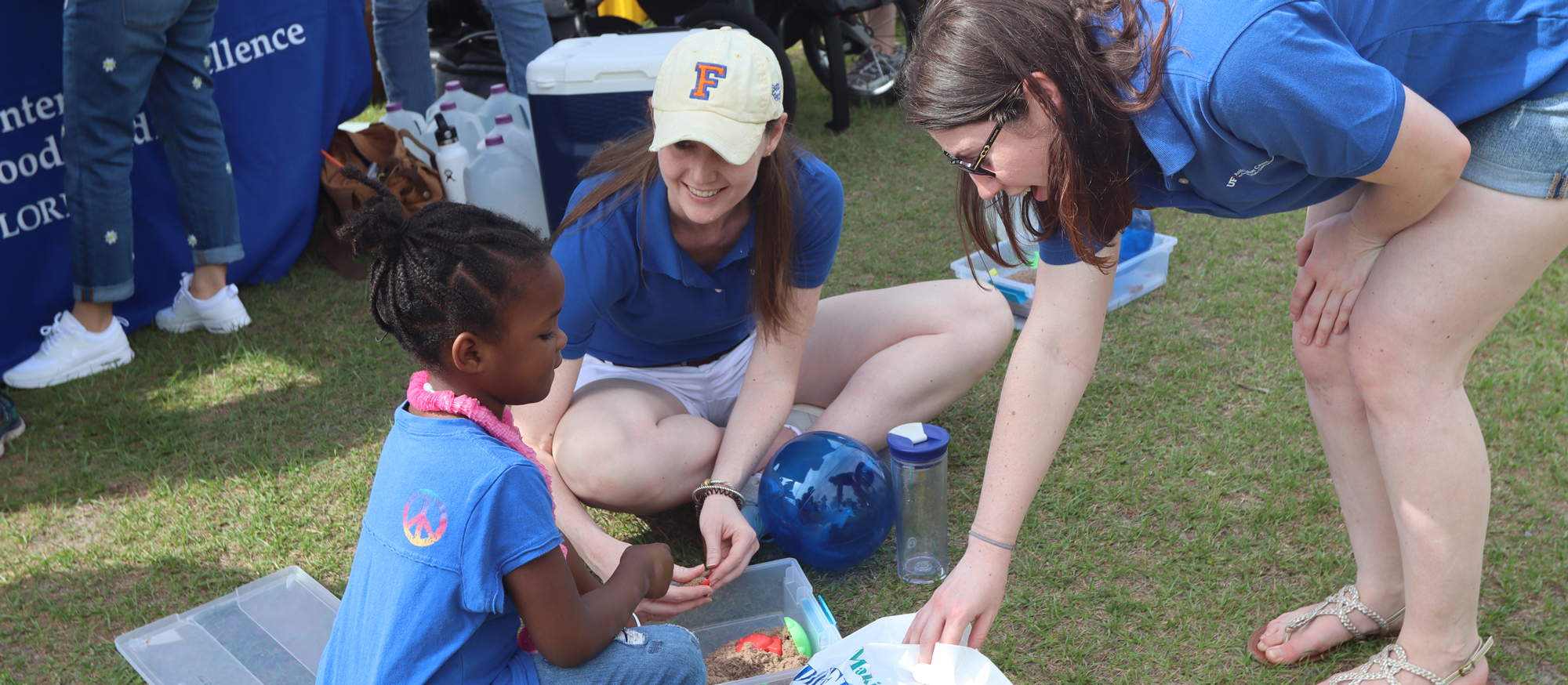
The Anita Zucker Center for Excellence in Early Childhood Studies is bridging the research-to-practice gap through a powerful initiative that is fostering inclusion in the classroom for young children with or at risk for disabilities using embedded instruction methods.
“When they walk through the door, we’re committed to ensuring that they’re going to experience the very best of what we know from the science of early childhood development and learning,” stated Patricia Snyder, director of the Anita Zucker Center for Excellence in Early Childhood Studies, at the CHILD Center for Early Learning’s ribbon cutting event.
At the Anita Zucker Center, the overarching goal is to support the wellbeing of young children and their families. The four pillars through which this goal is accomplished include generating knowledge, preparing leaders, engaging with partners and making an impact. While these are four separate constructs, there are times they blend into single concerted outcomes. Such has been the case with two of the most recent center initiatives: the CHILD Center for Early Learning and the A to Z’s of Early Childhood.
CHILD Center for Early Learning
When Pre-K graduation day came around, center members found it hard to believe that the CHILD Center had been in operation for a full year. Herman Knopf, project lead and center research scientist, joined staff and caregivers at a graduation ceremony held for children who would be entering Kindergarten in the fall.
The CHILD Center opened its doors a year prior, to help provide excellent, affordable childcare to families in Southwest Gainesville as an extension of the efforts of the Southwest Advocacy Group (SWAG). Community members, area organizations and agencies, and local government worked collaboratively to make this needed community asset a reality, and the Anita Zucker Center has led efforts to put the science of early childhood into practice.
Through research application and with the support of our community, the CHILD Center serves as a model of synergy and transformation for similar community initiatives. Currently, center members are working with community stakeholders in Charleston, South Carolina to help replicate the Child Center model.
The A to Z’s of Early Childhood
In October 2018, the university committed more than $17 million to fund “moonshot” research initiatives designed to address a number of critical societal issues, including early childhood learning and development.
In collaboration with the college’s E-Learning, Technology and Communications (ETC) department, the center is developing a multimedia communications hub to distribute actionable tips and tactics to practitioners and families and scientific information to researchers and policymakers. The intent is to ensure that every child enters Kindergarten healthy, socially competent and ready to learn. This project is a direct outgrowth of a recommendation from national scholars who attended the University of Florida Starting Ahead, Staying Ahead summit in 2017.
“We have worked closely with the Anita Zucker Center to translate current early childhood research into actionable messaging for parents, practitioners and policymakers,” said Jason Arnold, director of E-Learning, Technology and Communications. “The goal is to support the healthy development and well-being of all children by informing their caregivers and policymakers.”
Through the A to Z’s of Early Childhood, information is delivered at regular intervals, using a letter of the alphabet as an anchor for a topic relevant to children’s health and development. For example A is for Access and B is for Behavior. The information housed at UFEarlyChildhood.org includes everything from short videos and quick tips to academic research and citations.
The practical applications of research conducted at the center has the potential to change lives and communities on a global scale.

A Decade of Dedication
Through example, the center director Patricia Snyder has brought the mission to life. Earlier this year, Snyder was awarded the title of Distinguished Professor. This rare honor is reserved for professors that have had a significant impact in field and according to UF guidelines is “intended to recognize a sustained and exemplary record of accomplishment across all three domains of the UF mission, including scholarly activity, educational and outreach contributions, and service.” Snyder is only the seventh College of Education professor to ever receive this distinction.
Over the years, the center has grown and evolved and is making a measurable positive effects on children’s lives. Now approaching the 10-year anniversary, leadership is prepared to redouble efforts to address their guiding tenets.
“We’re leading the way to a future where every child experiences nurturing and responsive relationships and quality early learning experiences that create a strong foundation for future life success.”
Patricia Snyder, Ph.D.
Center Director
 Early Childhood
Early Childhood
